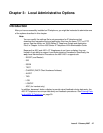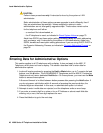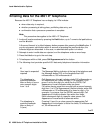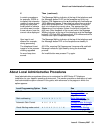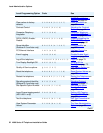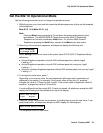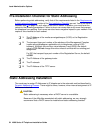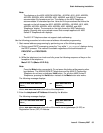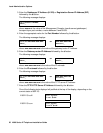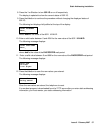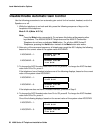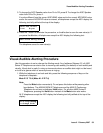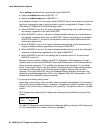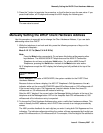
Local Administrative Options
54 4600 Series IP Telephone Installation Guide
Pre-Installation Checklist for Static Addressing
Before performing static addressing, verify that all the requirements listed in the Requirements
to Verify about the Network section of the Pre-Installation Checklist are met. You do not have to
consider item 4.
on page 20, as it refers to the DHCP server. In addition, you must have the
values for the following parameters. Failure to do so can cause data entry errors that prevent
the telephone from working. Such errors can also have a negative impact on your network. Print
copies of this checklist for each subnet.
Static Addressing Installation
The usual way to assign IP Addresses to IP telephones is the automatic method described in
Dynamic Addressing Process
. There might be times, however, when manual assignment of IP
Addresses is desired.
!
CAUTION:
CAUTION: Static addressing is necessary when a DHCP server is unavailable.
Because of the difficulties associated with static addressing, we very strongly
recommend that a DHCP server be installed and static addressing avoided.
1. The IP Address of the media server/gatekeeper (H.323) or the Registration
Server (SIP).
2. The transport layer port number of the address of the Management Complex
(media server/gatekeeper, applicable only to telephones running H.323
software). Although this can be a value between 0 and 65535, the default
value is 1719. Do not change this value unless it conflicts with an existing port
assignment.
For SIP, the transport layer port number of the Registration Server; the default
is 5060.
3. The IP Address of the gateway/router.
4. The IP netmask.
5. The IP Address of the TFTP server.




